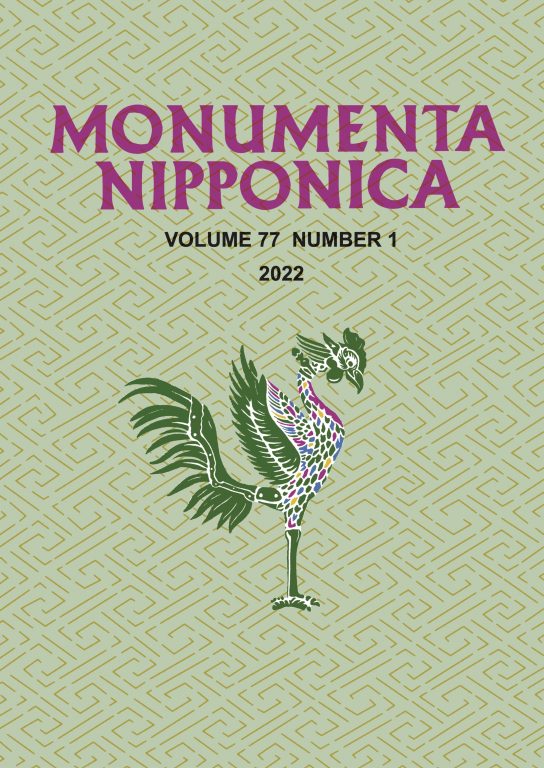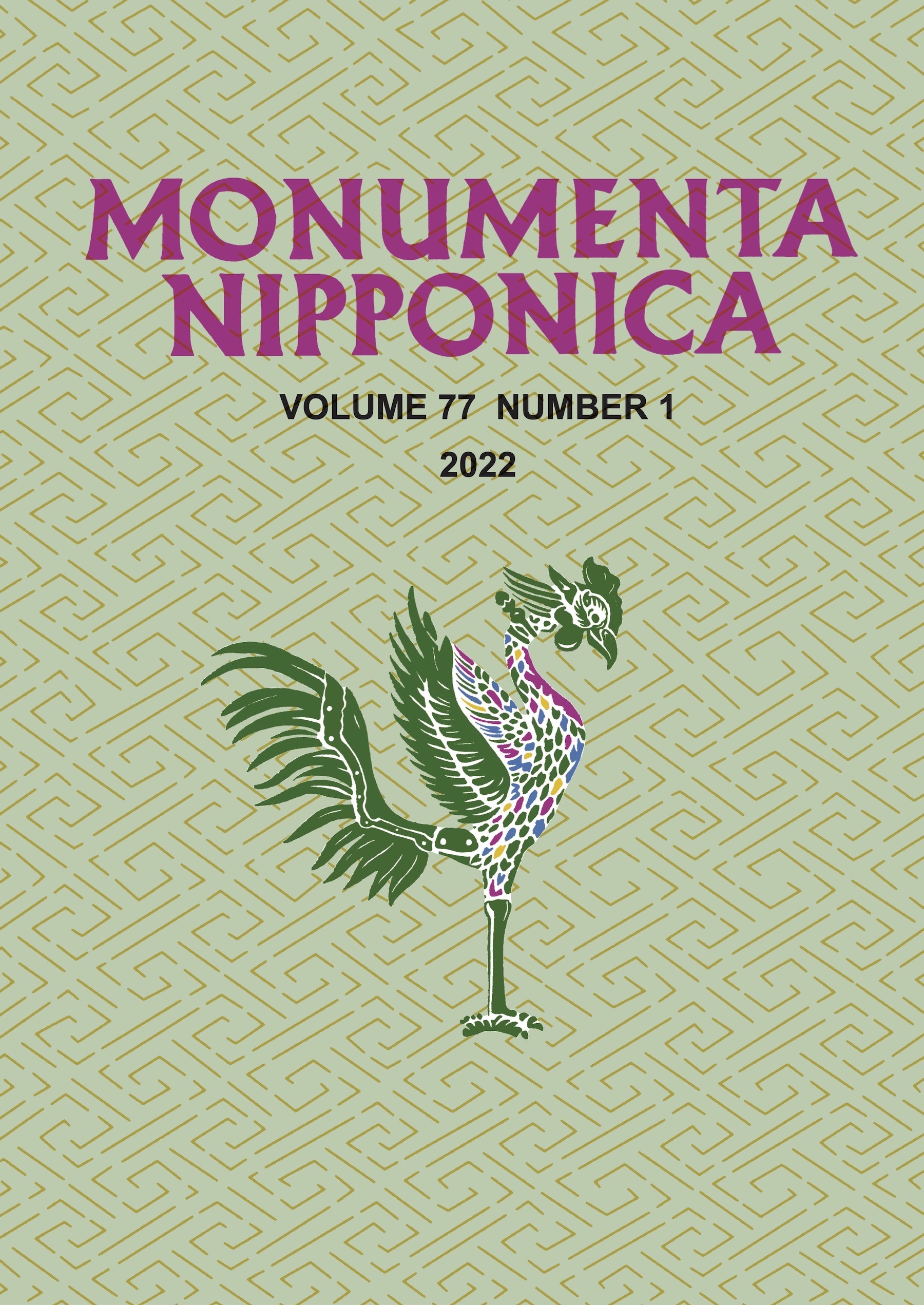Sacred Noh at Kanda MyōjinGerald Groemer
MN 77:1 (2022) pp. 77–107
From perhaps the early sixteenth century until 1720, performances of noh, considered a sacred offering to the deities, took place in conjunction with a festival regularly sponsored by Kanda Myōjin, a major Edo shrine. Staged after the conclusion of the festival, these presentations gave the commoner public an important opportunity to experience the time-honored art of noh. This study examines the origins of the event, its performance area, the actors and programs, and the increasing difficulty in procuring the vast funding necessary. I argue that the demise of sacred noh resulted from a combination of changes in the community of parishioners, a conflict of interests between parishioners and the shrine, and a series of unfortunate fires—factors compounded by a general decline in popularity of noh.

